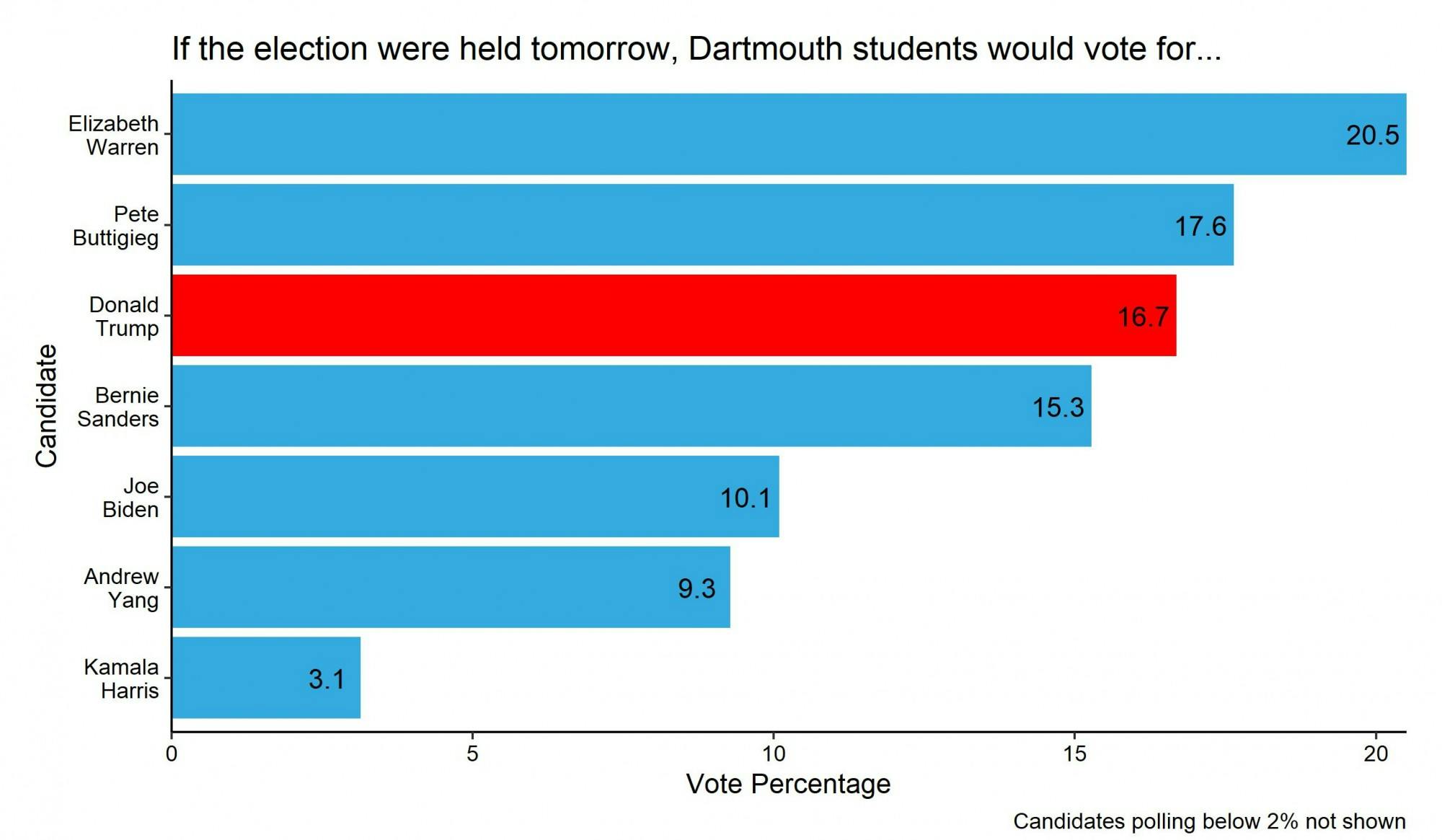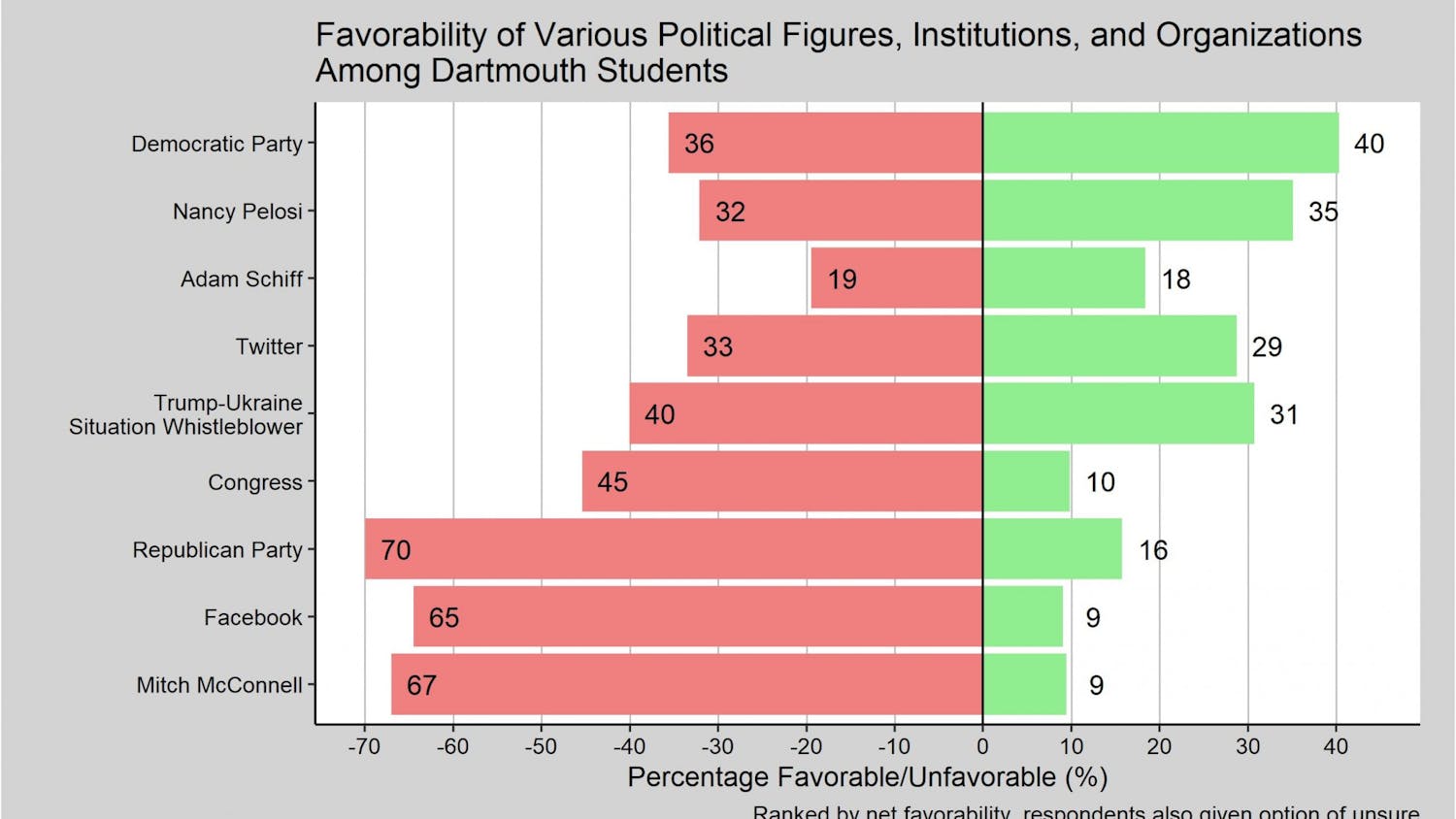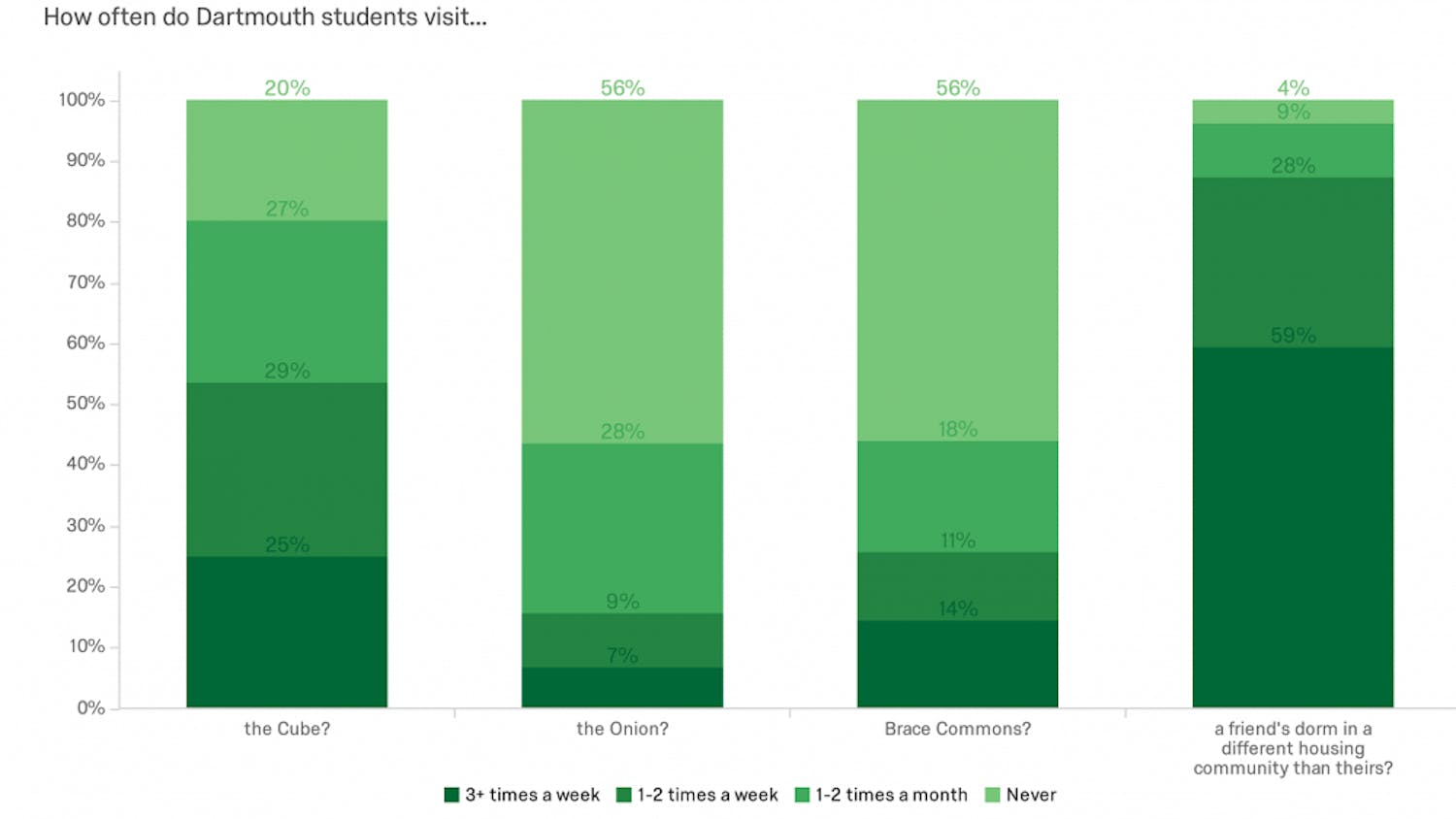As the days become colder in New Hampshire, the 2020 presidential race has been heating up, with a little less than three months remaining before the first-in-the-nation primary. The Dartmouth conducted a poll last week collecting students’ views on the upcoming presidential race and current political issues. Here, we present some of the key results. A more detailed analysis of survey results will be published online in the near future.
Trump and Buttigieg gain while Biden and Harris lose ground
The Dartmouth’s survey found that Sen. Elizabeth Warren (D-MA) leads among Dartmouth students, with 20 percent of the student body responding that they would have voted for her if the election had been held at the time of the poll. South Bend, IN mayor Pete Buttigieg came in second with 18 percent, followed by President Donald Trump (17 percent), Sen. Bernie Sanders (I-VT) (15 percent), former vice president Joe Biden (10 percent), Andrew Yang (9 percent) and Sen. Kamala Harris (D-CA) (3 percent). All other candidates polled below two percent.
Compared to the The Dartmouth’s earlier survey conducted last spring, Buttigieg and Yang have surged ahead, gaining seven percent and five percent, respectively, while support for Warren and Sanders increased moderately. This change may come at the expense of other candidates — particularly Biden and Harris, whose support among Dartmouth students dropped four percent and eight percent of Dartmouth students, respectively. As a result, Biden dropped from second to fifth in the rankings, while Harris fell from fifth to seventh. The exit of some candidates from the race may have contributed to these changes as well; for instance, around eight percent of students had supported former U.S. representative Beto O’Rourke in The Dartmouth’s spring poll.
Trump has also captured a notable amount of support, with a gain of seven percent since the spring poll. Much of Trump’s increase in popularity was driven by increased support from his own party: 80 percent of Republican-identifying students now support Trump, up from 64 percent in the spring poll. Trump has also increased his standing among independent students to 10 percent, up from four percent previously.
Fifty-one percent of Dartmouth students said they plan to vote in the New Hampshire primary while another 39 percent planned to vote in another state’s caucus/primary.
Among students who said they plan to vote in the upcoming Democratic primary, Buttigieg leads with 30 percent and Warren closely follows with 27 percent. Sanders (13 percent), Yang (11 percent), Biden (10 percent) and Harris (four percent) trail those two. All other candidates in the Democratic field polled below two percent.
The Republican primary, however, remains essentially uncontested. Among Dartmouth students who plan to vote in the New Hampshire Republican primary, more than 91 percent supported Trump, while former Massachusetts governor Bill Weld and former U.S. Representative Joe Walsh received only five percent and three percent, respectively.
Students’ views on President Trump
Dartmouth students remain significantly opposed to Trump’s actions as president. When asked whether they approve or disapprove of Trump’s performance as president, only 17 percent approve while 78 percent disapprove. Democratic students very strongly disapprove of Trump, with 99 percent disapproval versus only one percent approval. Other non-Republicans also generally disapprove of Trump: 78 percent of independent students disapprove (versus 13 percent who approve), and 60 percent of Libertarian students disapprove (versus 13-percent approval). On the other hand, Republican students rate Trump’s job performance highly: 79 percent of Republican students approve of Trump’s performance as president, while only 18 percent disapprove.
In August 2019, a whistleblower complaint alleged that Trump had improperly pressured the government of Ukraine to begin a politically motivated investigation into Biden and his family by withholding approved U.S. military aid. As a result, Congress opened an impeachment inquiry into Trump’s actions. Dartmouth students generally remain aware of these current events, with 77 percent reporting that they were very or somewhat aware of the details of the Trump-Ukraine situation. Furthermore, 66 percent of students support the impeachment inquiry against Trump, while 20 percent are opposed. This support for the impeachment inquiry also correlated strongly to support for Trump’s removal from office: 63 percent of all respondents also agreed with the statement “President Trump should be impeached and removed from office,” while 24 percent disagreed. Among Democratic students, 87 percent support the inquiry while three percent are opposed. Among Republicans, only 20 percent support the inquiry while 73 percent are opposed. Independent students are also generally averse to Trump, with 59 percent support for the impeachment inquiry and only 17 percent in opposition.
Another article with more details will be published online in the future.
Methodology:
From Wednesday, Nov. 13 to Monday, Nov. 18, The Dartmouth fielded an online survey of Dartmouth students on their views about the upcoming election and other political issues. At that time, Deval Patrick had yet to announce his intention to run in the election. The survey was sent out to 4,845 students through their Dartmouth email addresses. Five hundred and thirty-two responses were recorded, resulting in an 11.0 percent response rate. Using administrative data from the College’s Office of Institutional Research, responses were weighted race/ethnicity and graduation year. Weighting was done through iterative post-stratification (raking). Survey results have a margin of error +/- 4.01 percentage points.




